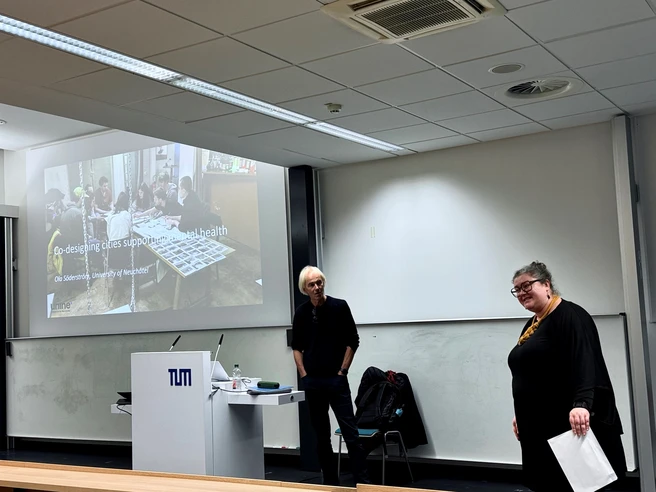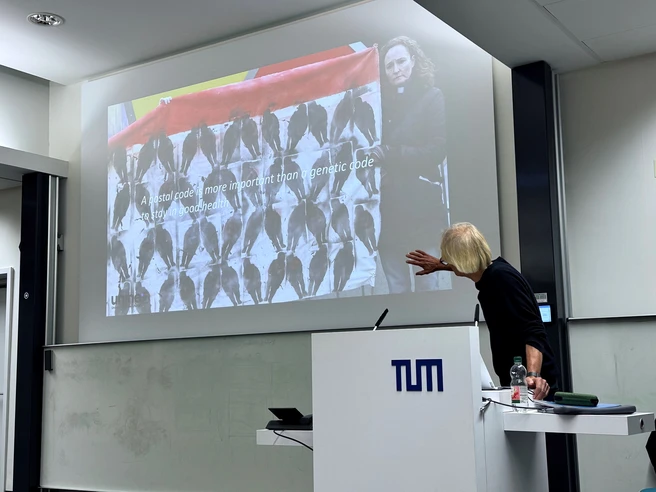Ola Söderström on Urban Mental Health & Go-Along Methods
“A postal code is more important than a genetic code to stay in good health.”
What if where we live shapes our wellbeing more deeply than our biology? With this striking claim, Emeritus Professor Ola Söderström (University of Neuchâtel) set the tone for two thought-provoking events on November 6, 2025:
In his methods workshop, “Go-along Methodologies as Tools for Studying and Designing the Urban”, Söderström invited participants to rethink how cities can be studied and designed through movement. Drawing on decades of urban research, he showed how “walking methods” reveal the lived, sensory, and emotional dimensions of city life and how they can open up more inclusive and caring forms of urban design.
The public lecture, “Co-designing Cities Supporting Mental Health”, continued this exploration, focusing on how neuroscience, psychiatry, and the social sciences can work together to understand and foster mental wellbeing in urban environments. Drawing on his work with people living with psychosis, Söderström described how we can rethink cities as spaces of co-creation, empathy, and recovery.
Both events sparked lively discussion among students and researchers from across disciplines, leaving participants with a renewed sense that caring for mental health begins not only in clinical settings, but in the everyday streets and spaces where we live, walk, and connect.
The events were organized by the Science and Technology Policy Research Group at the Department of Science, Technology and Society (STS), TUM School of Social Sciences and Technology, and the TUM Innovation Network for Neurotechnology in Mental Health (NEUROTECH).

